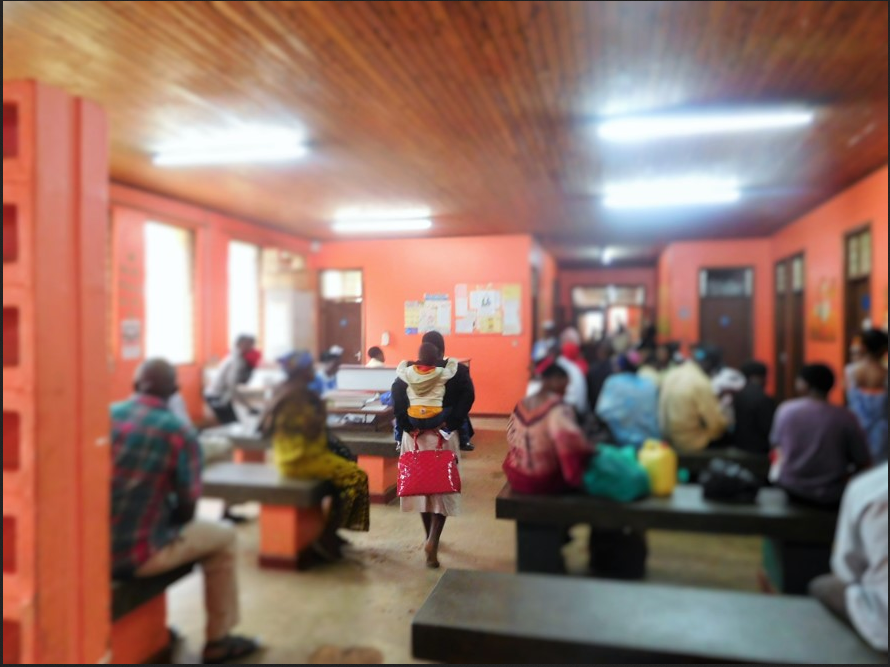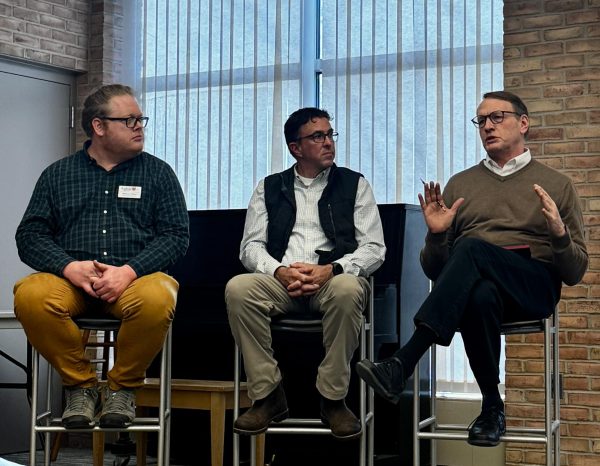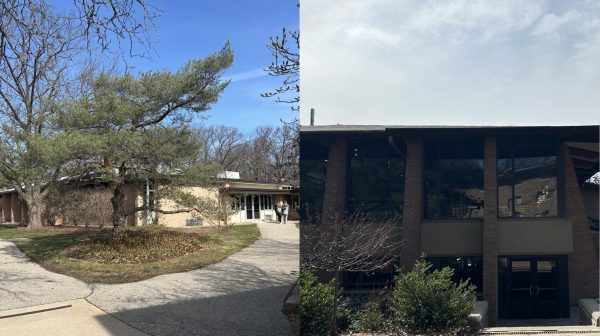Nursing professor researches cognitive interventions for malaria survivors
A photo from Katherine Miller’s time in Uganda where she worked on her research project on malaria.
Malaria deaths have dropped over the last decade thanks to greater access to treatment, but for those who survive the disease, physical recovery is not when the effects of malaria end. Katherine Miller, PhD, RN, and new nursing professor at Calvin, researched cognitive impairment resulting from severe malaria, and a possible treatment for it. This research was her recently completed PhD dissertation. Miller shared her findings with a large group of nursing students on Monday, March 11.
Miller spent three months in Uganda working on her project. She did secondary analysis on data that Ugandan research and medical teams had collected. In the original study, a group of children, half of whom were malaria survivors, interacted with a program called Captain’s log Computerized Cognitive Remediation Therapy (CCRT) which was designed to improve brain functioning. Miller hypothesized that the children’s academic performance would improve after participating in the program.
To conduct her study, Miller collected academic reports for the children in the study, from before and after they participated. A major challenge in the project was attempting to standardize the reports, as teachers evaluated their students in varying ways. Local members of the research team also conducted surveys of other variables in the children’s lives, and found that children with malaria lived in home environments that received lower scores.
When Miller finished analyzing her data, her thesis was disproved. “The computer program had no effects in the classroom,” said Miller. “It’s just not translating to the academic setting.”
This put her in the position of trying to figure out what to do with negative results. She noted that it is difficult to find a publisher for a study with a disproved hypothesis. Miller also emphasized to the nursing students at her seminar that studies that don’t go as expected are still important. “Everything I’ve done is a step that someone else can learn from,” she said.
After her presentation, Miller said the biggest takeaway from her research was the importance of community involvement. “We need to be integrating ourselves with the community first… instead of coming in assuming we know what the right answer is.”









